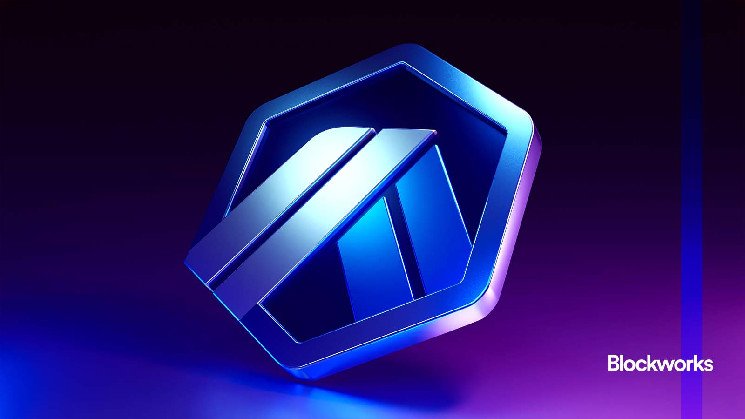This is a segment from the 0xResearch newsletter. To read the full editions, subscribe.
Alliance DAO continues to shape the crypto landscape as an influential accelerator, supporting Web3 innovators with high growth potential.
With thousands of applications per year, Alliance leverages its extensive data set to track trends and provide insights into the evolving crypto sectors. This was evident during Alliance’s latest Demo Day yesterday, where a group of crypto prospects presented their latest and greatest ideas to provide a snapshot of the future of crypto development.
The startup pitches aligned well with Alliance’s recent report on industry trends. The report highlights the continued dominance of Ethereum as the blockchain of choice for building dapps, where approximately 62% of startups in the Alliance program have their roots. Yet interest in alternatives is growing, especially for Solana.
Optimistic rollups such as Optimism, Arbitrum and Base are quickly accepted compared to zk rollups. Base has received a lot of interest from developers since its launch in 2023 and now accounts for a large portion of L2 activity.
Solana has rebounded strongly in the two years since the collapse of the FTX, accounting for 18% of recent Alliance applications. Meanwhile, Polygon, once a favorite EVM scaling solution, has seen waning interest as it pursues a move to a zk-validium.
Projects such as Amihan game Farm Frens and Offramp are deployed as Telegram apps while using other networks in the background. Farm Frens relies on NFTs minted on Solana, while Offramp partners with wallet-as-a-service and account abstraction solutions from Dynamic and Zerodev to enable embedded, EVM-based non-custodial wallets. This helps Offramp deliver user-friendly blockchain interactions within Telegram, while taking complex technical details away from users.
Product verticals in the crypto space are undergoing a shift, with more focus on infrastructure, payments and DeFi applications, Alliance found.
Infrastructure projects have steadily gained popularity, partly due to their high valuations and investor appeal. DataHive, a distributed data collective powered by AI, exemplifies this interest by addressing the need for data democratization and privacy in a crypto-native framework. Starpower, a DePIN for sustainable energy, combines DeFi with real-world resources to support distributed energy resources.
In contrast, interest in DAOs and NFTs has waned as founders increasingly prioritize utility-based applications that address specific user needs over community-led governance structures.
Alliance partner Qiao Wang has also spoken out about the role of speculation in the crypto space, seeing it as a crucial driver of innovation and early-stage project growth. Wang argues that unlike traditional venture capital, where risk aversion can stifle bold ideas, the speculative culture within crypto allows projects to secure resources and iterate quickly.
This approach is in line with Alliance’s selection of startups. It supports protocols including that of Whalfare, which combines speculative gameplay with the allure of applications such as Candy Crush. The goal is to demonstrate the appeal of gaming as an accessible entry point for crypto adoption.
The theme carries over to Demo Day participants Force Prime and Kiss of Rug. Force Prime, a prediction market built for strategy games, illustrates how startups are creating gamified experiences that also cater to high-risk, high-reward speculation. In a similar vein, but with a “SocialFi” bent, Kiss of Rug tries to put a twist on the dating app by applying game theory to the matching system.
Geographically, the trends report finds a significant decline in applications from the US and Canada, with the combined share falling from 45% at the end of 2021 to 29% in 2024.
This decline can be attributed to increasing regulatory challenges in North America, which have caused founders to relocate or build more crypto-friendly regions. Startups like RPS, a Twitch-inspired monetized competitive gaming platform, are embodying this shift, tapping into Asia’s active gaming and social platform market. Asia and Africa, meanwhile, are witnessing increasing adoption, driven by real-world applications such as stablecoins.
The report highlights that approximately 72% of startups within Alliance’s accelerator operate entirely remotely, a setup that aligns with crypto’s inherently global and decentralized ethos.
However, Alliance still maintains a preference for in-person teams whenever possible, as in-person interactions are believed to promote stronger team cohesion and accountability.

